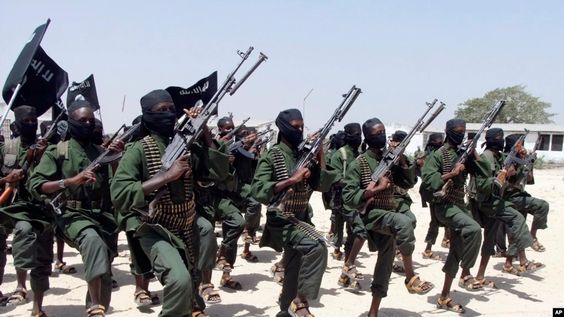Africa
Al-Shabab is deliberately displacing civilians, according to the Somali government

The Somali military said that al-Shabab rebels drove people out of towns and villages they had taken over on purpose so that government troops couldn’t get back in.
Al-Strategy Shabab’s, according to military sources, is to discourage citizens from cooperating with the government.According to officials, Al-Shabab also “kidnaps” families of locally organized troops that support the government as a form of retribution.
According to the government of Somalia, troops took nearly 70 areas away from al-Shabab. On December 5, forces invaded the Middle Shabelle region’s Adan Yabaal, the last significant town to be taken.
According to military officials, some of the inhabitants left as the combat drew near, but some had already been told to leave by al-Shabab.
According to Brigadier General Abdullahi Ali Anod, spokesman for the Somali military, “they took several families with them because they accused them of having their sons join the Ma’awisley and alleged that their lads had picked up arms against al-Shabab.” Local militias fighting to support the Somali government are known as the Ma’awisley.
Anod claimed that the main objective behind the group’s expulsion of residents from communities is to keep people from developing friendly ties with the authorities. We are engaged in a conflict over territory and people.
He claimed the terrorist organization was employing a tactic that gave local commanders the directive, “If you lose the territory, do not lose the people.”
That seems to be the goal, according to Somali President Hassan Sheikh Mohamud, as al-Shabab drove residents out of Adan Yabaal last week.
Adan Yabaal is home to 10,000 people, according to an al-Shabab representative who was speaking on behalf of the government.
“No one can abduct 10,000 people,”
Yusuf Isse Kabakutukade, the group’s shadow governor for the Middle Shabelle region, denied kidnapping the civilians. He said that the president’s words were “lies” and “surprising.” He also said that al-Shabab had taken people from Adan Yabaal.
The radio station for the group was stated by Kabakutukade: “No one can kidnap 10,000 humans.” Where in the Middle Shabelle region do you hold 10,000 individuals, even if they were abducted and taken by force?
He admitted that the town’s population had fled, but he provided many explanations. According to Kabakutukade, “some took up their weapons and are in the woods with the mujahedeen, while some wished to keep away from his [the president’s] fitnah [trouble].”
Masaajid Ali Gaduud, which is one of the largest villages in Middle Shabelle, was reportedly one of the places where the group forced people to leave.
a million and more displaced people
This is happening at a time when conflict and drought have caused a lot of people to move around their own country.
In the first ten months of 2022, 1.59 million people were displaced in Somalia, according to aid organizations’ reports this month. More than a million people had to move because of the drought, at least 500,000 because of the violence, and there were more than 6,300 protection violations all over Somalia.
In a report, the Norwegian Refugee Council and the United Nations High Commissioner for Refugees said that drought and the threat of starvation were the main reasons why people were forced to move, but that the recent worsening of armed conflict had also caused more people to move.
According to authorities, the Hiran region was the source of at least 47% of the conflict-related displacements reported between January and October 2022. The focus of the government’s campaign against al-Shabab has been Hiran.
Agencies say that fighting between al-Shabab and local clans in the area has destroyed a lot of property, like telecommunications facilities, boreholes, and wells. There have also been executions, self-immolations, and arson.
Al-Shabab has been using these tactics for years, as was seen in 2014 during the group’s last major effort to take back towns before this campaign.
According to officials, the militant organization forced civilians to flee El-Bur town in Galmudug in March 2014 as Ethiopian troops and a few Somali soldiers were moving in to retake it.
Officials say that at the time, the group’s fighters also damaged the water wells, a practice that has continued repeatedly during the current onslaught.
According to Nur Hassan Gutale, the mayor of El-Bur town, who was nominated by the government, “they demolished the water wells and they took the generator.”
“The people have been told to leave, but they have also turned off the water and electricity.” Life won’t exist if water and power aren’t available. As a result, individuals would be compelled to relocate to an area with access to water. It’s one of the key motives for why they’re bringing folks along.
The militants in Adan Yabaal also took the pumps off of the two wells in the community. Since then, the government has delivered replacement pumps.
The community received food help on Wednesday during a visit from Prime Minister Hamza Abdi Barre, who also pledged to restore the hospital and schools. He was accompanied by officials who said that locals have begun to return to the town. When public services were reinstated, more inhabitants would return, one of the elders who had returned told Barre.
